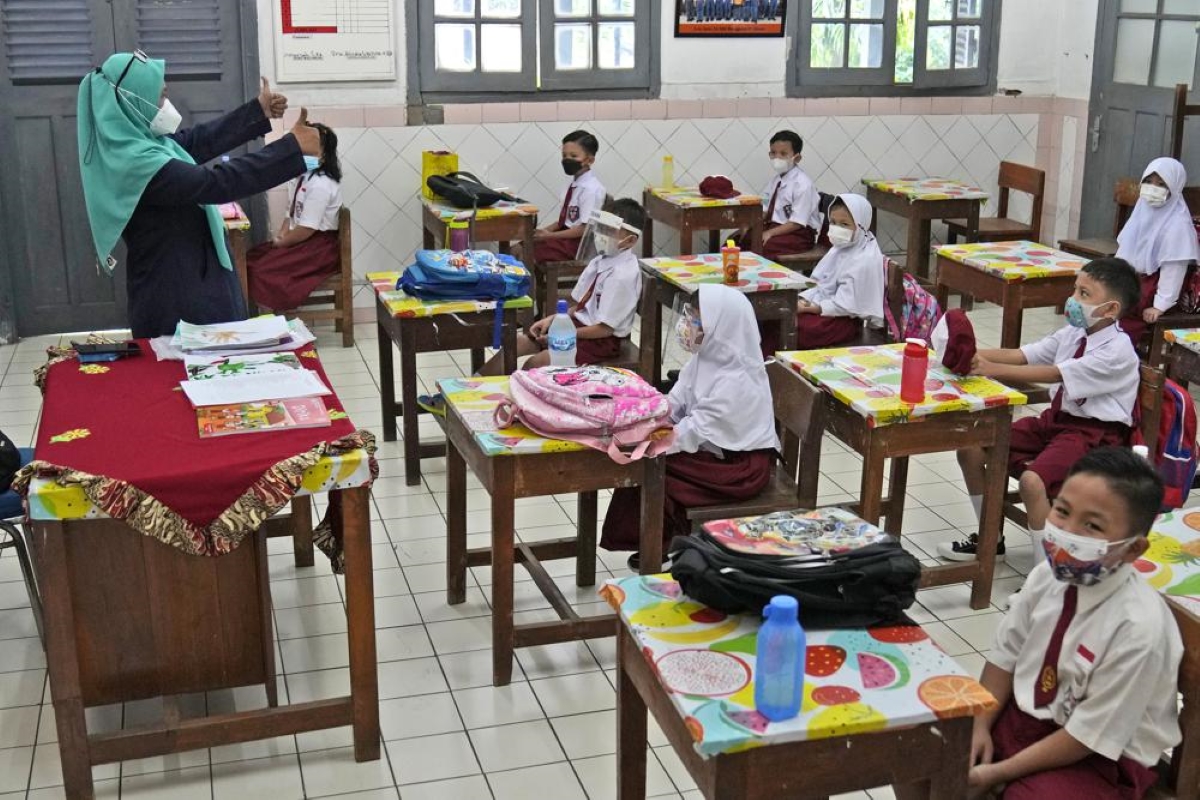School bells in some parts of Indonesia’s capital have rung again as classes resumed after more than a year on Monday while the daily case tally continues to slump.
City administration had planned to reopen schools in June which was halted due to a resurgent virus of the highly contagious delta variant.
Advertisement
However, Jakarta Education Agency reopened their doors to a total of 610 schools after they passed the required tests.
“We had been past the peak of the second wave of Covid-19 infections,” Jakarta Vice Governor Ahmad Riza Patria told reporters on Monday, adding that they hope to reopen all schools in January.
There are about 5,341 schools in Jakarta, ranging from elementary to high school, according to government data.
“I feel nervous,” said Akila Malawa, a 12-year-old student going to class for the first time in more than a year at the Suluh junior high school. “But I’m so happy to see my friends again.”
“I hope that coronavirus in Indonesia will end, so, I can go to school and meet friends every day,” said her classmate, Amalwin Harjodisastra.
Schools in several other cities outside Jakarta were also to reopen on Monday.
Even as schools reopen, government guidelines for school facilities have changed many class traditions.
Chatting in class is not allowed, facemasks must be worn at all times and no one can leave class for recess and class capacity has been capped at 50 per cent by holding classes in two shifts. Teachers must be vaccinated.
In person schooling will be blended with remote learning and gradually increase based on the government’s evaluation of the situation.
Indonesia’s health ministry reported 7,427 new infections in the past 24 hours on Sunday, the lowest daily total since 9 June. There has been a steady decline since the peak on 15 July, when more than 56,000 cases were recorded in a single day.
Once the country’s Covid-19 epicenter, Jakarta has been seeing declines in both active cases and new cases since mid-July, from more than 100,000 active cases per day to below 8,000 a day and from more than 10,000 new cases per day to below 500.
Also, patients are not being turned away from hospitals like in the past as the bed occupancy rate has declined in several regions.
The Central Jakarta Health Service says the bed occupancy rate in several hospitals in Jakarta is now below 30 per cent.
Restrictions on public activities, which the government credits with helping to ease pressure on hospitals, are being eased in the capital.
Authorities in Jakarta have reopened malls, places of worship and outdoor sport venues since mid-August with certain capacity limits, and people must show they’ve been vaccinated.
Last month, Indonesia began vaccinating those aged between 12 and 18.
The country aims to inoculate more than 208 million of its 270 million people by March 2022.











